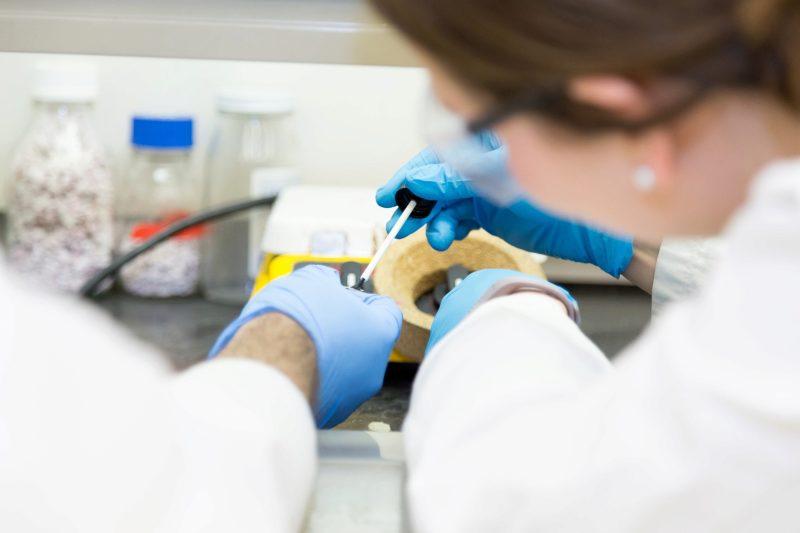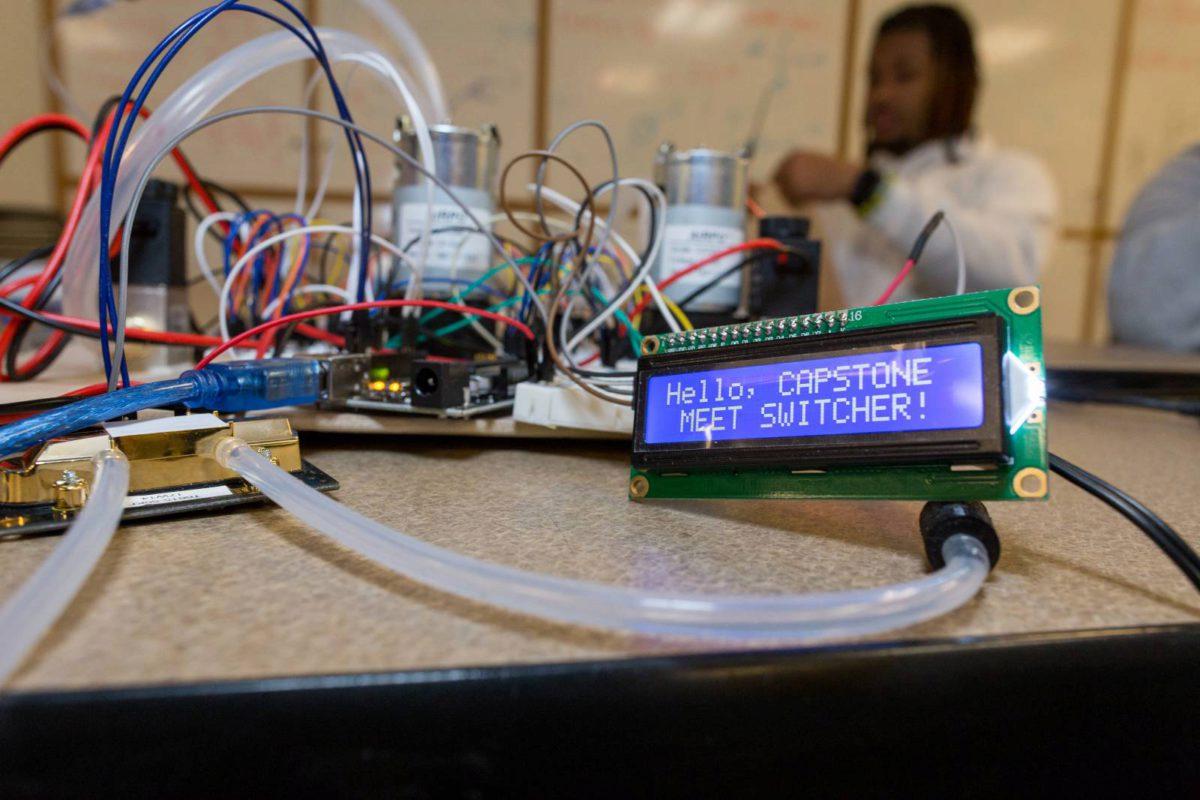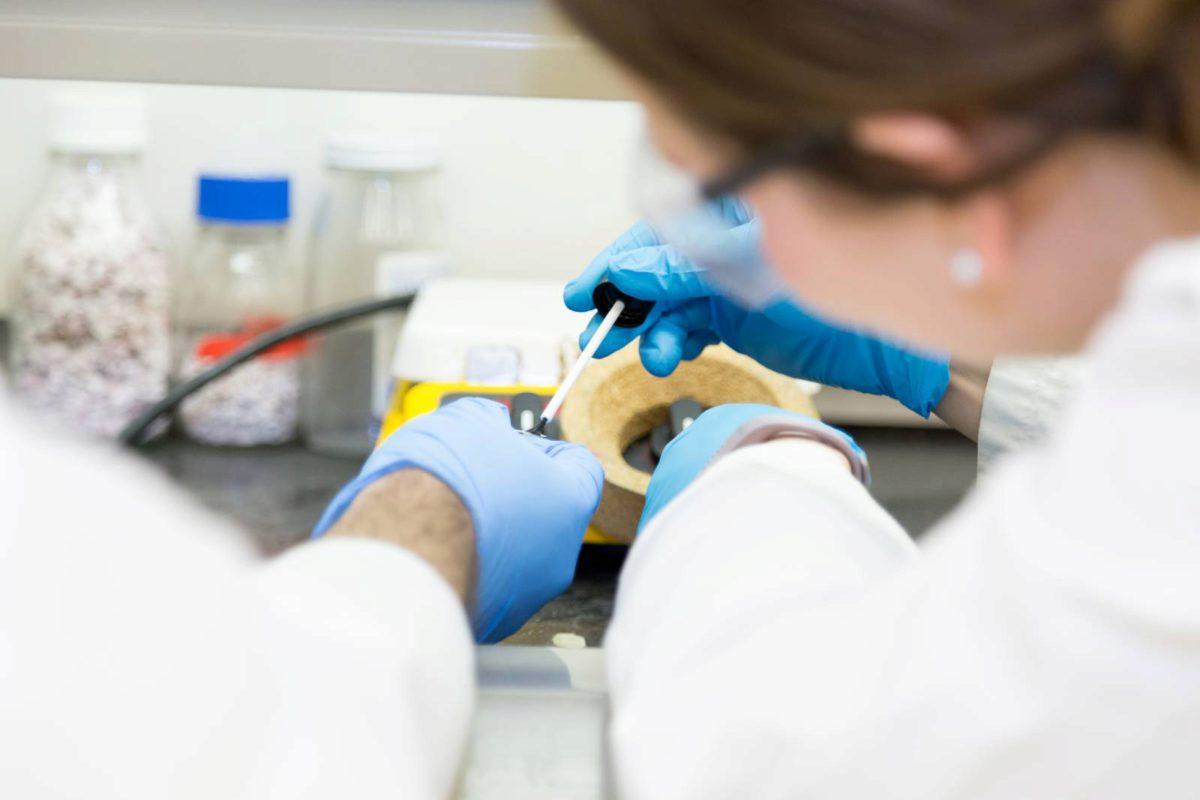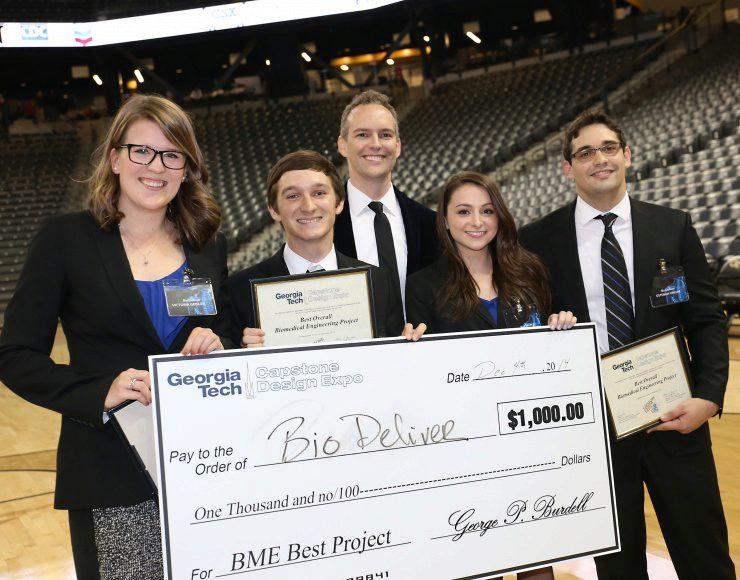
In a list of the things to avoid in an operating room, fire lands at the top. It becomes a real risk though. Surgeons need to use high-powered lights to look inside the body, and disaster can strike when that light — reaching up to 500 degrees Fahrenheit — lands on a surgical drape.
James Rains and his startup Jackson Medical have a solution to this dangerous problem: a device called GloShield that fits over light cables which includes a high temperature ceramic and protects those in the operating room, while still giving the surgeon enough light to see.
Rains is a professor of the practice and the director of the Coulter Department of Biomedical Engineering’s Capstone program. He uses his expertise in medical device design, as well as his own experience in launching a startup to mentor other aspiring inventors.
The Capstone program is the culmination of years of design learning undergone by every Georgia Tech College of Engineering student. Student teams are challenged to find a problem, and they work all year to solve it through the engineering skills they have spent their college careers developing.
The first step to this process, according to Rains, is making sure that the students are actually looking at the right problem.
“People spent years trying to redesign the carrot peeler,” said Rains. “But that’s not the real problem. The real problem is that you want peeled carrots. So somebody came out with a peeled carrot, and now some people go and buy a peeled carrot instead of a carrot and a peeler.”
The BME department takes a very hands-on approach to this stage, maintaining that the best way to learn about a particular challenge is to talk to those who face it. This allows teams to dig down to the root cause of the problem.
So Rains’ students scatter, finding individuals or groups facing an obstacle in the biomedical engineering field. One group recently worked with the Mayo Clinic and flew down to Florida several times throughout the year to watch dozens of surgeries and talk with more than 250 doctors and surgeons.
They found that one problem in particular continued to stump medical professionals: when performing a lumbar puncture in a patient’s lower back, there is a high rate of failure to place it in the exact right location, which can lead to unwanted side effects. With the help of professionals at the Mayo Clinic, the team came up with a device that not only verifies correct needle placement, but guides the needle into place. They named their device Neuraline, and this product is being tested across the country.
But such a success is only possible after a hefty amount of brainstorming. It is only after this crucial step that students can start developing a solution to the problem. Rains encourages his students come up with a minimum of 80 ideas for solution to the problem they identified. Part of Rains’ job as director of the Capstone program is mentoring student groups as they are going through the process. It might be their first time tackling a challenge like this from start to finish, and they will no doubt make mistakes.
Small slip ups are what makes people learn, said Rains. The most valuable lessons Rains learned while in industry came from mistakes. He wants his students to learn the same lessons and allows them to figure out what works and what doesn’t.
A few projects have recovered from their stumbles particularly gracefully, and have gone on to do big things after leaving their Capstone classes and graduate.
Some continue on to a CREATE-X program, an Institute-wide initiative to foster entrepreneurial ideas and empower students to launch real startups. The broader goal of this initiative is to provide the knowledge, skills, abilities and experiences that will give Georgia Tech graduates the confidence to create their own future and confidently pursue entrepreneurial opportunities.
The team that developed Neuraline is one of those that continued on to participate in CREATE-X. They transitioned from a group of college kids to a real company called Ethos Medical. Rains is involved in CREATE-X too, coaching student startups through their early stages. He is equipped to help these teams to develop their ideas into viable companies because he was in their shoes quite recently.
“Having gone through [the startup experience] myself from the ground up, I totally see a different aspect of it,” said Rains. “I have to do more hustling. That’s why I’m able to share with students pretty relevant experience of not just how you do it at a big company but rather how you do it as a startup as well.”
Every aspect of his own startup experience has helped him to help his students; from funding to finished product. Rains relies on his experience to guide students to success.



